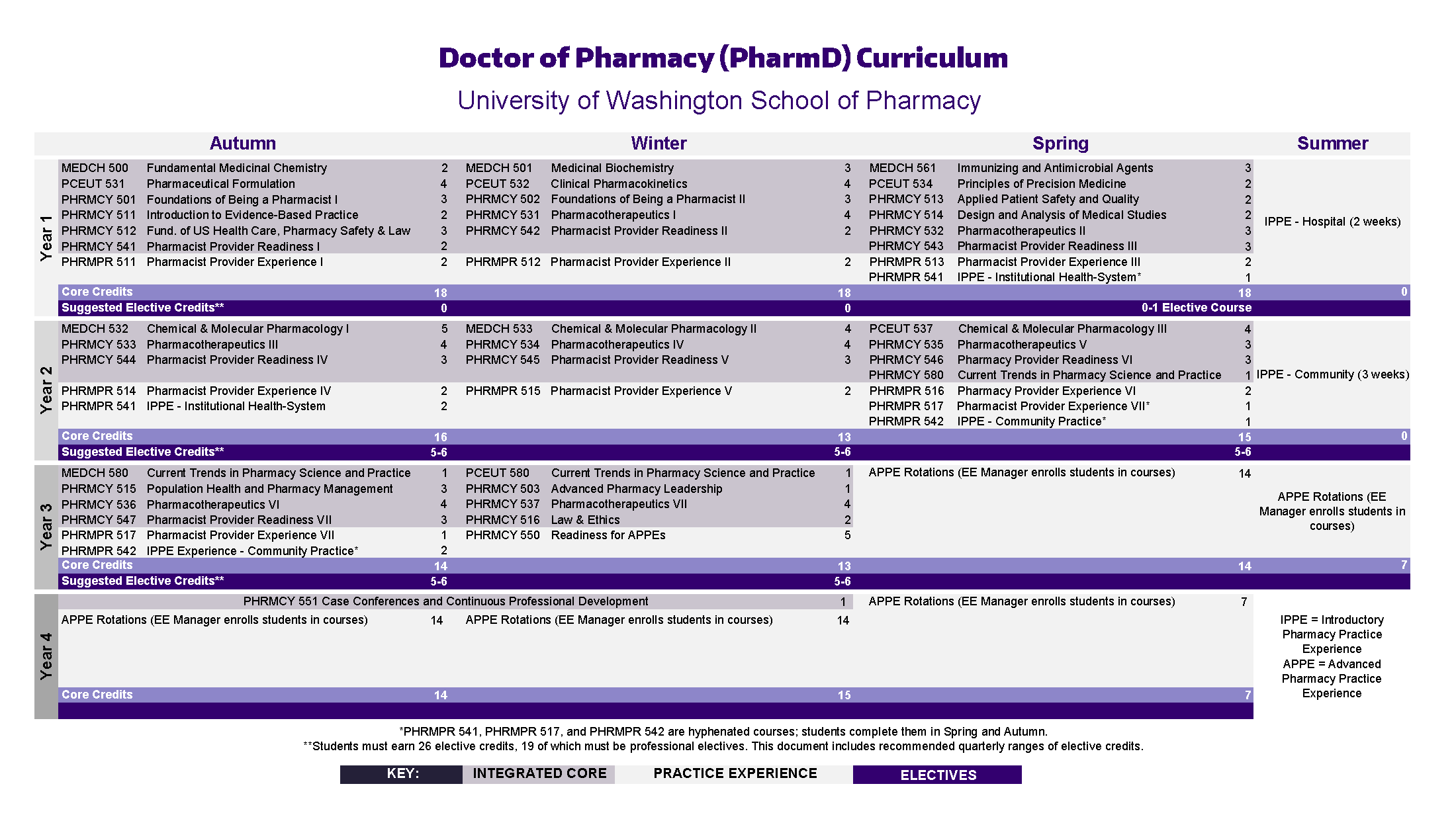The Doctor of Pharmacy curriculum provides our students with the scientific background and clinical skills to offer patient-centered, team-based care in an evolving health care system. Washington State is at the forefront of pharmacy practice innovation, and we train world-class pharmacists who are ready to practice at the top of their license and are agile leaders at the forefront of patient-centered medical care.
Our curriculum integrates world-class classroom instruction with early experiential learning to teach our students practical application of pharmacy concepts and knowledge. The wide range of available electives empowers students to explore career options and interests.
 Download the curriculum as a PDF
Download the curriculum as a PDF
Course Topic Areas
Fundamentals
Students learn how to apply their prior learning in basic sciences and drug knowledge to the context of pharmacy practice.
Example Course: Clinical Pharmacokinetics
Chemical & Molecular Pharmacology
Students learn about the chemical and molecular properties of drugs, their mechanism of action, and adverse effects.
Example Course: Chemical and Molecular Pharmacology I; Chemical and Molecular Pharmacology II: Blood, CNS, Endocrine and GI Drugs
The Pharmacist Provider Series
Students develop and refine pharmacy practice skills necessary for success in introductory, intermediate and advanced level learning experiences. Specific skills developed will include those that are essential for contemporary and future pharmacy practice, including but not limited to patient-centered care, communication, clinical decision-making, and many more.
Example Courses: Pharmacy Provider Readiness I; Pharmacist Provider Readiness VII
Experiential Education
Students complete a comprehensive series of pharmacy practice experiences that allow them to apply their classroom learning within real-life patient care settings. Courses include a “Wednesdays in Practice” series, which runs from the beginning of the program through the fall of the third year, two 3-week Introductory Pharmacy Practice Experiences, and eight Advanced Pharmacy Practice Experiences over 48 weeks. Learn more on our Experiential Education page.
Example Courses: Pharmacist Provider Experience I; Introductory Pharmacy Practice Experience in Community Practice Settings
Pharmacy Systems and Quality
Courses examine the concept of population health and the pharmacist’s role in it. Students also learn the pharmacy management skills that they may need to use as future healthcare practitioners.
Example Courses: Fundamentals of US Health Care, Pharmacy Safety and Law; Population Health and Pharmacy Management,
Clinical and Population Therapeutics
This course series provides a foundation in knowledge for patient-centered clinical case management. Students develop the critical thinking and decision-making skills necessary to deliver the medical treatment of patients.
Example Courses: Pharmacotherapeutics I; Pharmacotherapeutics IV